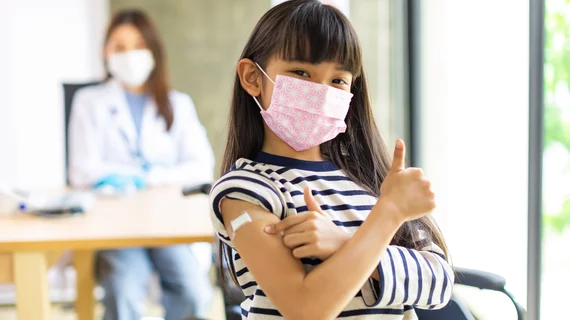Heart damage after COVID-19 vaccination extremely rare among adolescents
Children between the ages of 12 and 15 face very low risk of developing myocarditis after being vaccinated for COVID-19, according to new research published in the New England Journal of Medicine.[1] In addition, all cases of myocarditis identified by the study’s authors were mild.
The analysis focused on more than 182,000 children who received the Pfizer-BioNTech COVID-19 vaccine from June 2021 to November 2021. All children lived in Israel and were 12-15 years old at the time of their vaccination.
Previous studies focused on this patient population were limited to a follow-up period of just 30 days. The team behind this new analysis, however, hoped to gain a better understanding of the risks these patients face by following their health for a longer stretch of time.
“Our aim was to provide further evidence regarding the incidence of myocarditis after vaccination among adolescents and data regarding follow-up of six months or more,” wrote first author Guy Witberg, MD, a cardiologist with Rabin Medical Center in Israel, and colleagues.
Overall, Witberg et al. identified a total of nine cases of “probable or definite” myocarditis. This translates to a myocarditis rate of approximately 0.00005%, or 4.8 cases per 100,000 persons. Eight of the nine patients developed myocarditis after receiving the second dose of the vaccine. Also, eight of the nine patients were male.
“All cases of myocarditis were classified as mild, and the condition of patients was hemodynamically stable at presentation,” the authors wrote. “Abnormal electrocardiographic results were reported in 67% of the patients, and cardiac and inflammatory markers were elevated in all the patients. The in-hospital course of the patients was uneventful, and the median duration of admission was three days.”
Five patients showing signs of myocarditis underwent cardiac MRI scans while in the hospital. Specialists found “minimal evidence of myocardial scarring or fibrosis, with evidence of late gadolinium enhancement ranging from 0 to 2%.
None of the nine myocarditis patients were readmitted to the hospital after being discharged, the authors added.
“Our study indicates that BNT162b2 vaccine–induced myocarditis in adolescents appears to be a rare adverse event that occurs predominantly in males after the second vaccine dose,” the authors concluded. “The clinical course appears to be mild and benign over a follow-up period of six months, and cardiac imaging findings suggest a favorable long-term prognosis.”

